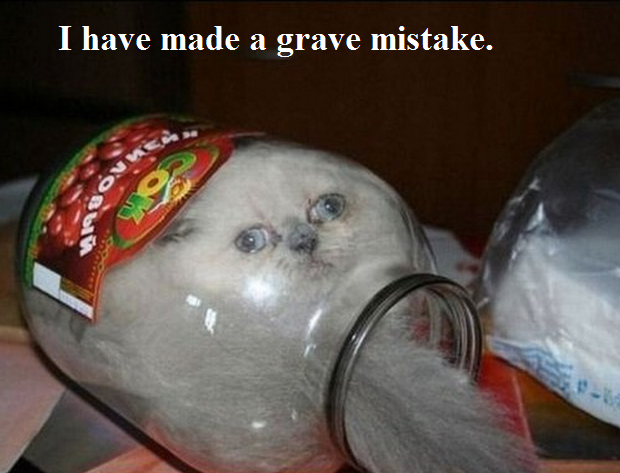Hello everyone. I’m going to try to pepper in some humour, as I usually do, but this post may lean far more to the serious side than others – just a warning.

As you all know from my last two posts, I have begun to embark on a journey of self-discovery via seeking out my biological mother. In the past this is not something I ever thought I would do, nor would want to do. However, after continuously hitting many of the same “walls” in life, mostly in regard to relationships and identity (i.e. – what do I want to do for a career?), I decided with the help of a very talented psychologist that this might be something I want to explore.
At the very least, I realized that it could give me a better understanding of my heritage, and provide for me some sort of validation that I have yet to really find of my mere existence in this world.
Although I can not say that I’ve ever really thought of myself as “incomplete” or “yet to be fully born”, I can say that the experience of learning more about adoption and the issues common to adult adoptees has brought to the forefront, or made more extreme, the feelings I can have of floating in the ether of the world, not really belonging anywhere. I think part of the reason this never really bothered me before is that I’m OK floating in the ether and not “belonging”. If I continue to be a bit of a misfit that is fine with me. However, planting my feet firmly on the proverbial terra ferma of what is me, is looking to be crucial to my finding any success in the working world.
This is where I am going to change my focus to any fellow adoptees out there. I am going to be sharing a bit of my experience with you, just in case you are considering seeking out your birth family as well. There are feelings that seem to be fairly common during this time of discovery for all adoptees, so I am documenting them here to help enlighten you.
On Reunion
I was talking to a good friend, and fellow adoptee earlier today. I refer to him sometimes, playfully, as my “brother from another adoptive mother”. We met in high school and have been good friends since. We don’t talk very often anymore, but have gone through a surprising amount together. I imagine part of what brought us together was our shared experience of being adopted. We had very different homes that we were raised in, for example; he grew up with a sister who was also adopted, whereas I grew up an only child. Also, my family was fairly well-off, whereas his lived a much more modest life.
Neither of us had an easy time of it, regardless. I realize now that our childhood and early youth were extremely turbulent. As a result, in a way, we are very close. Earlier this morning I confided in him that I am struggling a lot with this experience. I found my birth mother, and have since started correspondence with her via email. I told him that it has been an extremely odd experience thus far. It feels very surreal and distant, yet, I’m clearly in the thick of it.
Even as I write this – I may sound like I have all of my shit together, but believe me, I do not. I seem, even to myself, very disconnected to what is happening. However, the amount of emotions I’m experiencing and the questions that have arisen are overwhelming to a degree where half of the time I have no idea what is going on.
I’ve received several emails from my birth mother now, and yet, I still can’t believe that she is real. Hilariously, or sadly, or frighteningly, adoptees tend to experience much of life in this way. Where so many things can happen, or be said, yet just not be registered by the adoptee. Ask any of my previous partners, or even my adoptive parents and they can attest to this. Some things just do not sink in.
It’s okay sometimes, but as an adult, this phenomenon is just not acceptable, and frankly, very scary. In fact, it feels as if I’ve had some mild form of Alzheimer’s disease my entire life. There are people I know who can remember that “this” happened when they were “x” years old. I can very rarely, if ever, remember when in my history certain events happened. It’s frightening.
Any way… To get back to the story. In explaining to my friend what it feels like, I came up with what seems to be a very good analogy.
It’s like meeting a stranger who was in the same car accident you were in years ago, but in different cars. Neither of you knew the other was there, but when you meet, you feel connected because of that event. Because the event was traumatic, turbulent, and dramatic for both of you, meeting each other brings up all of these emotions, and in a way, takes you back to the event. Which, for anyone who suffers from PTSD, can be a very difficult thing to deal with.
If you have ever known anyone with PTSD related to something that happened to them – i.e. childhood abuse, being mugged, sexual abuse in college, war – whatever it happened to be, the smallest, seemingly unrelated content can trigger an “attack” that causes them to recall the event and experience the emotions and psychological distress of it over again. Can you imagine involuntarily experiencing extreme fear in response to something seemingly insignificant? Now, try to imagine getting over something in which EVERY DAY, something “common place” and seemingly innocuous triggers a panic attack. How does one “get on” with life when your trauma keeps slapping you across the face?
Now, imagine that you cannot even recall the event itself. How do you pinpoint when what you are feeling and experiencing is related to the thing that happened, versus what is happening right now? A boss at work makes a comment in jest that your brain registers as rejection, and immediately your heart starts preparing for the let down. Perhaps you start to distance yourself, leaving your boss and coworkers a little confused. Mistaking your being quiet and keeping to yourself as anti-social behaviour – “clearly she doesn’t want to be here”. Why keep seeking human interaction when you don’t even know how you might react?
Questions
Preparing to meet my birth mother, and possibly other biological family members, has brought up so many questions that tend to flash through my mind in fast succession. It’s as if they are too overwhelming to consider one at a time.
Questions like; What if the experience changes me? What if I feel more connected to my birth mother than my adoptive mother? What if I become more invested in having a relationship with her and my biological family, and creep them out? What if my half-siblings dislike me because I grew up having more than they did, because their mother – my birth mother, gave me up for adoption?
It’s a cacophony of questions, emotions, and confusion going on in my head right now. In many ways there are moments where I feel like I have regressed entirely. In others, it feels like my capacity for love, to be adult, and to be present in the moment is completely shot. I honestly have no idea what is going on.
There is also excitement. There are moments where I am very excited to learn more about my heritage. I even look forward to meeting my birth mother. However, the weight and depth of this experience is not lost on me. Although I know that this may not change me (even if I do worry that it will), I do know that this will change my life. It already has. Perhaps the reality of that is already sinking in.
I’ve had 3 panic attacks within the last month. They seem to come out of nowhere and mean nothing. I just feel like I am dying, I hyperventilate and cry. The first of the three was the most intense. I lost my hearing temporarily and came close to blacking out. I have started to recognize that panic attacks happen in this early phase of growth. I have experienced periods in my life where I become withdrawn, anxious, unable to cope with human interaction and have panic attacks. It seems to just be what I do when at the beginning of a transformation.
To any fellow adoptees out there who are reading this, I hope that my sharing some of my own experience with this helps you to at least prepare. Or maybe to recognize what you are going through and make it a little easier to deal with. The fact that I have been able to recognize that my panic attacks tend to happen during periods of extreme growth has helped me deal with them a little better.
In Summation
Life is hard. This experience has proven to be far more intense than I ever thought possible. Adoptees can be very good at shrugging things off and appearing like a serious situation is no big deal. However, when it comes to seeking and meeting your birth mother, there is no way to do that. You will not be able to, and should not attempt to shrug it off as “no big deal”. It is a big deal. As Nancy Verrier says, the biological connection between mother and baby is extremely primitive and really cannot be understood, but should not be denied.
It’s important for all involved in reunion to understand that finding your birth mother/parents has nothing to do with your adoptive parents. It’s about finding you, learning about your heritage and genetic history, and reconnecting to the person who gave birth to you.
Nancy Verrier quotes an adoptee who put it very well, she says:
“Mom and Dad, yes you are my Mom and Dad, but your ancestors are not my ancestors”
Incredible. Very on point. I had never really thought of it that way before, but that puts it in perspective in the best way possible.
Here is the first part of a 3-part interview with Nancy that does a great job of summarizing the issues, politics, and gravity of adoption that society often overlooks.
I think, as adoptees, we eat those feelings a lot. It had become common place for me, and probably is for most adoptees, to not care or to not be curious anymore about your genetic background after the 50th time you hear someone marvelling at a baby, and how much he or she looks like the mother or father. It gets tiresome, having people make comments about your heritage and having to say, “actually, I’m adopted”. You often get the, “Oh…”, response.







